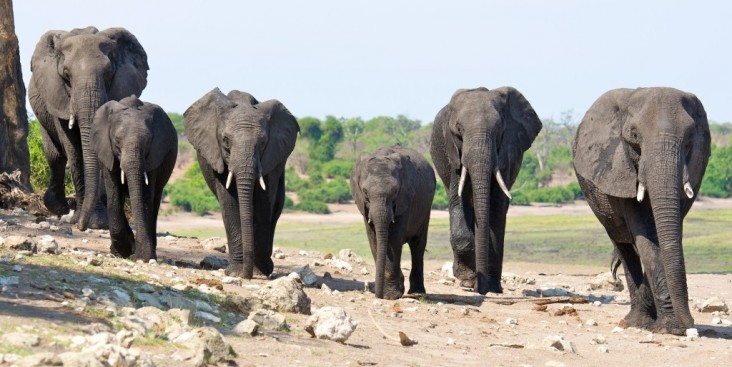- What We Do
- Agriculture and Food Security
- Democracy, Human Rights and Governance
- Economic Growth and Trade
- Education
- Ending Extreme Poverty
- Environment and Global Climate Change
- Global Climate Change
- Conserving Biodiversity and Forests
- Sustainable Urbanization for Global Progress and Security
- Securing Land Tenure and Property Rights for Stability and Prosperity
- Sustainable Land Management
- Environmental Impact Assessment
- Knowledge Management for Environment and Natural Resources
- Sustainable Tourism
- Earth Day
- Gender Equality and Women's Empowerment
- Global Health
- Water and Sanitation
- Working in Crises and Conflict
- U.S. Global Development Lab

Earth Day marks the beginning of the modern environmental movement that led to the passage of some of America’s most important environmental laws, including the Clean Air, Clean Water, and Endangered Species Acts, and the creation of the U.S. Environmental Protection Agency. Now, 45 years after it was first observed, Earth Day (also known as International Mother Earth Day) is celebrated in more than 192 countries, providing an opportunity to reflect on the environmental challenges we all face. This year’s theme, “It’s Our Turn to Lead,” is a reminder that a new generation is stepping up to find innovative solutions to conserve our precious natural resources.
The United States has a deep and abiding conservation tradition, and it is essential to USAID’s mission as an international development agency. Healthy natural systems provide goods and services that sustain life and improve human well-being: pollination, erosion control, water supply, and other ecosystem services provide benefits worth an estimated $1 trillion per year to poor communities. Billions rely on forests or fish for income or food, and nature-based tourism is crucial to the economy in many developing countries.
Over the last century, nature has been degraded at an increasingly rapid pace with disproportional impacts on the poor. Conservation actions, such as enforcing wildlife laws and partnering with indigenous communities to protect forests, can safeguard nature’s benefits while leading to equitable and sustainable development in rural areas.
At USAID, It’s Our Turn to Lead by:
-
Supporting land tenure policies and resource rights, giving people the right to own and manage natural resources responsibly;
-
Fighting deforestation and planting trees, so that forests continue to provide clean water and air, improve agricultural productivity, slow the rate of climate change, counter desertification, and support economic growth;
-
Protecting biodiversity, so that people don’t lose essential goods and services generated by intact ecosystems, and species aren’t lost to extinction; and
-
Mitigating and adapting to the effects of climate change, so countries can grow their economies without harming the environment, and be resilient to warmer temperatures and weather shocks.
It’s also Our Turn to Lead the fight against wildlife crime. Protecting wildlife from poaching and illegal trafficking helps secure our global heritage and undermines the criminal networks that exploit humans and nature, flouting rule of law and tearing the fabric of national security. USAID helped craft and is now implementing parts of the U.S. National Strategy for Combating Wildlife Trafficking, and contributed to the Presidential Memorandum on Establishing a Comprehensive Framework to Combat Illegal, Unreported and Unregulated (IUU) Fishing and Seafood Fraud.
On this Earth Day, we are particularly proud to launch the Wildlife Crime Tech Challenge in partnership with the National Geographic Society, the Smithsonian Institution, and TRAFFIC (the wildlife trade monitoring network). The Challenge will reward innovative science and technology solutions that help combat terrestrial and marine wildlife trafficking. Successful applicants could win up to $500,000 as well as technical assistance and networking opportunities to scale their solutions.
At USAID, every day truly is Earth Day. Through our comprehensive, collaborative, and evidence-based approach to conservation, we aim to diversify livelihoods, end extreme poverty, improve peace and security, empower women, and build resilient societies.







Comment
Make a general inquiry or suggest an improvement.